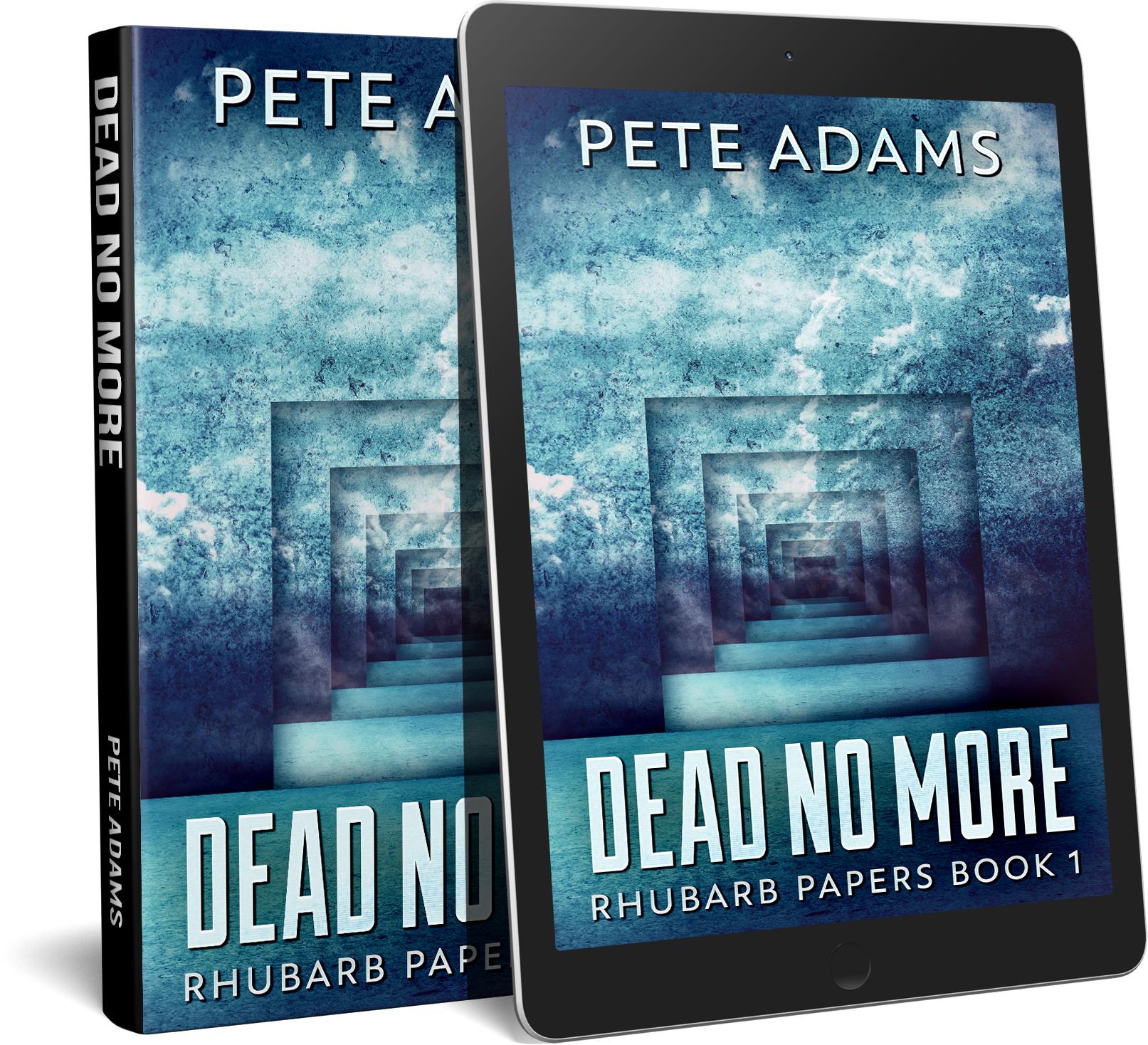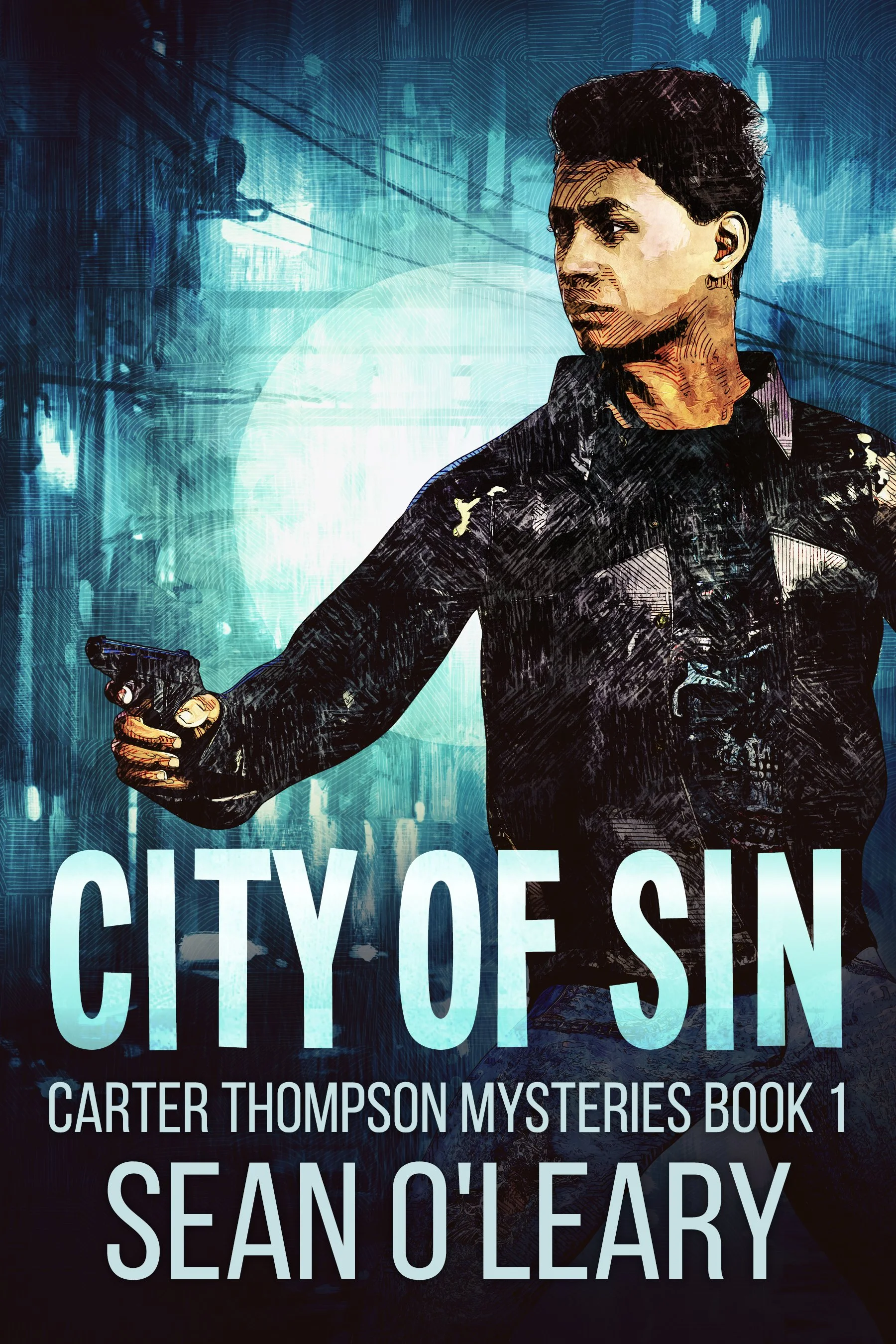Dead No More (Rhubarb Papers Book 1)
Book summary
A decade after a violent explosion ended Operation Rhubarb, 16-year-old Juliet seeks the truth about her parents' deaths, triggering a dangerous investigation into the hidden secrets of a centuries-old London bank. As the case reopens, long-buried truths threaten to unravel, placing Juliet and those seeking justice in grave danger.
Excerpt from Dead No More
Oh Gerdad, how I wish things had been different, but the desire for the truth burned a hole in my soul and you knew that. You said revenge could only hurt me, and in a way you were right, even more so if you are reading this letter, because it means I am likely dead. I needed answers, I needed to be at rest, one way or the other, and so I’m sorry for this additional hurt.
You have been my world since that awful day, and I know you still grieve for Mum, Dad and Nan. I have given my life my all, but it could never be enough, and bless you, because you saw this. Why did you never say? You knew, you saw; the brain damage was not severe, and concealing this knowledge likely prolonged my life, at least long enough to make sense of what was left of my world, and I believe I now have.
People laughed at us, especially at me, and at first this was so upsetting and cruel; you showed me they were just shallow. “Muddle-headed” you would say, and that always made me laugh as I pictured their heads full of tangled string, like a Mr Man cartoon.
I knew the risks, though I had hoped for a better outcome, and I am grateful to Sam, please don’t blame him. You always believed in me, a girl with half her head done in, but what was left worked okay, if a little awkward. I have been able to fathom some of the mystery, but for the real answers you must look into your heart; please look, Gerdad, my dearest wish is you will find peace yourself, as I believe I now have.
I love you so much
Juliet X
----------
Kerr Nakka would look and, in the process, he would unpack his suitcase of hurt. But would he have the strength and, more importantly, the ability? He never was the sharpest knife in the drawer, but he will look, even if it is the last thing he does, and it just may be.
Chapter 1
10 years ago:
The burnt-out wreck of a car was on the front page of all the papers, and beside the picture of abject horror, portraits of the victims: DCI Dawn Nakka, Serious Crime Squad (retired); her daughter, Carol Johnson, Special Branch; and her husband, Jim Johnson, Something in the City; DEAD. A six-year-old daughter, Juliet Johnson, survived though seriously injured.
Shortly after, a matter of weeks, the devastated family were swept under the carpet. Talk only of the New IRA, Al Qaeda? One paper, derided by the Establishment, talked of organised crime, London Gangs, but the spin won; it was terrorists, and the police closed the case, an enquiry wrapped up in double quick time. The only criticism, the speed of solving the crime, the intimation being any ordinary person, not a copper, would not get this efficient service. Not one commentary suggested it could have been a whitewash.
Juliet did recover. She was closely cared for by her grandfather, Kerr Nakka, and Dawn Nakka’s sister, Lisa. The story was buried and the Nakka family buried themselves soon after the funerals, hidden away, Juliet because she was so grotesquely scarred, and Nakka because he was so scared.
Now they have been found.
-------
Two days ago:
Gravesend, the tip, as the Thames bends back on itself at Broadness Lighthouse Island. It was here the body of Jack Styles was grounded, it bobbed in the tiny laminar wave action across the broad mud flats as the water ebbed. Where the body lay was a still part of the river and so it had stuck, rising and sinking with the in and out, high and low tides, waiting to be discovered. Would a flood tide take it away to be lost forever? Not likely. Would this be an error in judgement? Absolutely.
------
Yesterday:
‘Lilac, how insipid is that? Who wears a lilac coat these days?’ a worrying dialogue, left right, right left, an incessant nagging in her head as she looked on.
‘The mist off the harbour makes the lilac coat strangely evocative though, don’t you think?’ left voice said.
Right replied, ‘Yes, hmmm, you mean like a black and white film where a single colour is picked out, but only just, a pastel and subtle hue. What does this say about the woman wearing the coat, lack of confidence?’
‘Why do you think that? Why do you think you have to wear something strong in colour in order to display confidence and strength?’
And so the dialogue continued in Lisa’s head, back and forth, questioning and providing answers to her own questions. Lisa wore strident clothes, colours that shouted at you, not that she needed to. She had an abundance of strength, confidence, and ability, and was pretty good at shouting should the occasion call for it.
‘Maybe you just hate pastel colours, have you ever thought about that?’ Left.
Right, ‘Yeah, and lilac would be right up there. Shite fucking colour.’
At eight in the morning, the early autumn mist off the Harbour was beginning to shift, but was still dense and vaporous, monochromatic images of a familiar place, indistinct. A film of moisture on the black cobbles, glinting, a reflection of the halo orb from the one street lamp – orange, and the lilac coat, the only colour, both liquid and insipid.
‘How much of the image is memory recall? Do you think it looks like that place…?’ and Right dung-der-dunged a theme tune.
Left, ‘I like that Harry Lime film, where was that?’ Left was the romantic side of Lisa’s head.
‘Vienna, Portsmouth Harbour, I think not! What’s the matter with you?’ Right replied, being the more pragmatic, unsentimental of her voices, although Right had to admit there was something magical about a sea mist shrouding the harbour.
Lisa liked autumn mornings at the Camber of Portsmouth Harbour; it reminded her of the Thames in the East End of London, Shadwell Basin, where she grew up, especially when the day had started with a dense river mist. It made the bad and the ugly appear good, a romantic tableau that would disperse soon enough, a bit like the first snow covered up the old shite strewn streets, and for a while it was magical, soon to be churned into a brown mess.
But who was this petite woman standing at Nakka’s warehouse? The lilac lady dwarfed by the tall and wide timber gates that desperately needed another coat of paint. She knew them to be bottle green in the days when the paint was fresh, though it conveyed a worker-day image, an image suitable for a functioning dock area. However, the pretty houses and the pretty people had moved in and were beginning to encroach, to squeeze Nakka, and assert their not so pretty and exceedingly petty and pompous opinions.
‘Toffee-nosed twats,’ Right.
‘They want Nakka’s home, his property,’ Left.
Nakka’s property wasan old boatyard and warehouse, lovingly, if amateurishly, restored and converted.
‘Home? It’s just a fucking shed and yard, you dipstick, and that’s falling apart, he’s bloody useless with tools. Well, most things really.’ Right saw it how it was, and ironically, was right; Nakka was no handyman, and certainly no craftsman.
The shed was not falling apart, though you could be forgiven for thinking so, and that suited Nakka. Least this is what he told those people he acquiesced to converse with, that he liked this image of Dickensian decrepitude, and most agreed the image matched his skills. And so, unless he employed a builder, which would not suit his desire for obscurity, or to dip into his pocket, or indeed his nature, then he had no choice. But it sufficed, and in its arcane and impenetrable, dilapidated way, it was an eccentrically, cosy, hideaway home. It did need a fresh coat of paint; the gates, made of a variety of salvaged timber, which defended the yard, were almost back to the various bare and weathered woods. The finish on the timber sidings to the old warehouse peeled like sun-burned skin in sympathy with the gates.
Nakka didn’t care, he liked it. Liked his converted home and his inventive creations. He liked this derelict image. He liked shutting himself away, not through any romantic notion to seek the past or Dickens, heaven forbid Victorian values, he had no desire for abject poverty, and he was not an eccentric, least not in his own view, but others thought this. No, he sought peace and solace, and most of all, separation; he desperately desired separation, isolation, which translated to him as, security.
Now, in the bleakness, the only just creeping morning light, the gates, the shed that fronted the wharf, and the old brick perimeter walls that dipped their crumbling toes out into the harbour waters to be almost submerged at high tide, looked black, though fragments of that diluted light seemed to highlight the paint as it peeled, slowly, oh so slowly, but inexorably, inevitably, to reveal the wood beneath. “Life-force”, Nakka would say, explaining that death and decay was a form of life, and so it was. And so it had so painfully been for Nakka. And this he resolutely turned his back on.
‘He looks for signs of life in everything, even inanimate objects,’ Left voice.
‘Yeah, or death, the dipstick.’
‘Oh, don’t say that, he’s lovely.’
‘He’s a bleedin’ nutcase, and well past his loony sell by date.’
On this the voices had to agree with a sigh.
‘Especially inanimate objects,’ the voices conceded and laughed together, and Lisa’s head involuntarily nodded to itself, in understanding.
‘And who could blame him?’ Right.
‘He is lovely though,’ and at this, both voices pictured Nakka and sighed; he was lovely. A lovely, tortured soul.
‘You can sort him.’
‘Me?’
‘I mean both of us.’
And Lisa’s head again nodded.
She looked at the gates, wide, at least eight foot, and equally high, inaccessible, though there was a wicket door, locked. The gates were also locked and barred, and all set into the yard’s brick enclosing wall, equally eight-foot tall and topped with razor-sharp glass shards set in mortar. The hand-painted signs, looking like they were done by the local infant’s school, said PRIVATE – Do Not Enter, as if you were dumb enough not to realise, and if you were equally foolish and got into the yard, there were devices. Least this is what Nakka called them. And then there was Carol.
The lilac lady was conspicuously a stranger to the doors. She rattled them, pushed at the wicket, pushed the buttons of the combination lock as if by divine intervention she would strike upon the correct code. Looked up, looked around her, was she embarrassed? Difficult to tell. She stared up into the mist off the harbour for what seemed like an age, and the orange glow on her pasty, china-white face made the woman look glamorous like an old fashioned screen goddess.
‘What’s she doing?’
‘Reading.’
‘What, the sign?’
‘Yeah, probably.’
‘Well, good luck with that, sweet’art.’
Spanning across the top of the gates was a wrought-iron sculpture of crude fabrication; Nakka of course; no sculptor or a blacksmith, but that inability never deterred him.
‘Crude, because Nakka made it himself,’ the voices chuckled quietly, and the head looked on affectionately, maintaining surveillance of the lilac lady, who continued to stare at the spidery wrought iron that said, if you looked at it for a couple of hours with a cryptologist, or a specialist in Egyptian writing, Nakka’s Yard. That would have been easy to read, even as it was, written in metal as if by a four-year-old smithy, but it was the defensive contraptions that Nakka called his inventions, that obscured the chicken-scratched calligraphy; his first line of defence.
Lilac, after giving up on the sign, rubbed her neck and knocked her introduction on the gate in a genteel, pastel-coloured manner, feminine knuckles, unsure, nervous, was she embarrassed? Lisa watched as the pastel lady tipped her toes in a pointless gesture to unsuccessfully reach, even with an extended arm and open hand, the porthole in the gate that was generally out of reach for all but the tallest of callers, even with the calling step deployed. Lisa knew Nakka discouraged visits, and social calls were right out. To get in, you had to know how, and only a few knew this. To announce your calling successfully, you also had to know how, or spend an age working it out. Lisa knew, but she was defensive; she considered it her role to protect this vulnerable man and his granddaughter.
‘Is lilac lady on a social call?’ Left voice enquired.
‘She looks all business, even if the coat defies anyone to take her seriously.’
‘What could she want?’ the first voice replied, reinforcing the conundrum, causing Lisa’s defensive hackles to rise even further.
Encouraged by the relative obscurity offered by the now eddying mist, as the gentlest of breezes threaded into this enclosed street, Lisa leaned out from behind her brick corner. She imagined herself in a trilby, at a rakish angle, and again dung-der-dunged the Harry Lime theme in her head. It was strange, her vision of the familiar courtyard so blurred, and as if to compensate for this blindness, she became intensely aware of the detail of the brick corner that was her cover. Yellowy with black splotches, these bricks reminded her of London, in particular, the East End houses, her home, that bore the smog stained smuts from the sixties, her era, before the Clean Air Act. Lisa laughed at that, the Clean Air Act, putting the onus onto the people, typical, even though it was the Government who bore the responsibility for the bad chests, coughs and deleterious effects of the smogs on the people; selling the good coal abroad for funds to replenish the empty war coffers, and leaving only the inferior fuel, the smoky, dusty coal and coke, for the people to choke on. Lisa remembered the demonstrations, her dad joined them; he liked a punch up did her dad.
Lilac lady turned; sixth sense, someone was behind her? Who knew, but Lisa ducked behind her smog smutted brick quoin, just in case. Squashed, nose flat against the brick, it was as if the masonry gave off the familiar smell of the London smogs. The smell of the coalman, manly sweat and coal dust, and she recalled going to school wearing surgeons’ masks that were handed out by the hypocritical authorities, black with coal dust particulates by the time they had walked to school. Oh, how they had laughed at each other. Oh, how mums and dads worried for the lungs of their vulnerable children. "They had come through the war only to have their kids slowly poisoned by their own government", that’s what her dad had said, looking around for someone to hit; his solution to everything, and it seemed to get him by until someone had tipped him in the Thames. It had been low tide, and he suffocated, head first in the mud; such was life, or not, in the East End of London.
Lilac lady, presumably comfortable with her perceived solitary safety, content she was not being observed, returned to the door and this time leant more strength to her fist, her knocks thudding, tiny paint flecks fluttered to the ground. The thumping sound, though dull, echoed strangely in the enclosed space of the cul-de-sac, especially where the walls closed in to form an entrance to the court. Lisa thought noises would be muffled by the mist; odd. Foghorns sounded from Portsmouth Harbour; she loved that sound and recalled similar, unusually harmonious, tones from the Thames when she was a child. The knocks became more urgent, thumping louder, and Lisa became aware of the combined cacophony in the mist. She reminisced, momentarily conjuring childhood memories, the almost disconcertingly comforting, reverberating thrum of a diesel engine from an oncoming bus that would appear suddenly out of the effluvium as she walked to school. They drove too fast, her mum would say. It was dangerous in the smog, and Lisa’s mum would regale the driver and conductor with ‘X’-rated abuse that became even more foul-mouthed as the conductor swung on the rear platform pole, waved and jeered in response.
And then there was the smell of this familiar courtyard. The smell of the harbour streets. Diesel off the fishing boats, fish guts from the fish market and gutting sheds, brine and ozone – beautiful. Childhood memories swirled like the mist, the heady historic aroma, like she was still a child, smog-bound beside the Thames. The smell tantalised her nostrils, she liked that. Not the smoke and coal dust, because that irritated her throat, but smells like the horse as it pulled along the milk cart; the horse knew his way around even if it was a real pea souper. The associated discordant chinking of the milk bottles, and the accompanying joyous, though tuneless, whistle of Milk’O. It had been Lisa’s job as a child to follow the horses and collect the dung for the roses. Jesus, the smell! Her dad hated gardening and hated roses, but Mum, she who must be obeyed, made him dig the garden and made Lisa collect the dung, ironically, with the coal shovel and bucket. In the summer there was always a good display that dad took pride in; mum would clump him, which Lisa thought was in a loving way? Dad never clumped Mum, he was not like that. He saved all his clumping for the Prime Minister if he ever met him, he said, and the other blokes in the pub. Now, he enjoyed clumping them, or so it seemed to Lisa.
Lilac lady looked around again. Even though she was to all intents, alone, Lisa could see she was not so much embarrassed as irritated.
‘Good,’ the voices agreed.
‘One more bang on the door should do it and she will leave,’ Right voice said, and the head watched on, but the woman didn’t leave, and Lisa’s head and voices reciprocated the lilac irritation.
The woman muttered to herself, and Lisa strained her ears to listen in.
‘What’s she saying?’
‘…She had an appointment?’
‘Shush.’
Lisa knew Nakka would expediently agree to meet with people just to be rid, and when they called, he would ignore them; served them right, he would say, and it probably did.
‘Serves them right,’ the voices agreed and Lisa’s head nodded; a rare accord.
He was a private man, was Nakka, which was a nice way of putting it, and who could blame him. He lived in a world of his own, a world of relative obscurity. Him and his granddaughter, Juliet, just turned sixteen, a young woman and quite a beauty if you could ignore the obvious. Lisa saw beyond the facial image. She knew Juliet took after her mum in looks, or would have, and most certainly in the brains department, despite the damage, because her mum had been Lisa’s sister, and the voices recalled and talked about family photos of happier times in the East End of London. Nakka was a simple man, and people questioned her sister’s judgement, though Lisa thought her sister, Dawn, married the better man. Lisa’s own husband had been a spiv, into this and that, ducking and diving, and although he had provided for her and enabled her to buy the shop, you had better not ask where the money came from.
‘Oh, and he was a piss-head, don’t forget that.’
‘How can you forget that, dipstick, the fights, the arguments, the wasted spondulics?’
‘He was a bully.’
‘Yeah, happy days,’
…and the voices chuckled, but the head stayed steady. They actually were not always nice times, and passing time had only made it appear as though they were happy days. How the mind deceives when it wants to ease painful memories, and there was no better expert at that than Nakka as he hid from life behind his jury-rigged barricade. Away from London. Hiding in Portsmouth.
Nakka was solid, not terribly good looking, dependable, but not bright. Lisa’s late husband had been rakishly handsome, and people thought she had made a good catch, and so did she at the time. Happy days, not. Though Nakka had been just about passing attractive, in the past, he was not what you would call a handsome man then, and especially not now; he had not aged well. Lisa knew only too well the sorrow that had dogged the man. The sadness ingrained on his face, except when he looked at Juliet when his face would light up, transformed and radiating grand paternal love. He saw his daughter in Juliet’s face, saw his wife, and saw what could have, should have been. A cruel world. Nakka’s was a powerful familial love, and one that might make a casual onlooker afraid, for it was intense. Too intense? Some thought so. Well, you had to know the story, for it was a protective love beyond normal grandparental boundaries, and, as it transpired, it needed to be.

















Praesent id libero id metus varius consectetur ac eget diam. Nulla felis nunc, consequat laoreet lacus id.